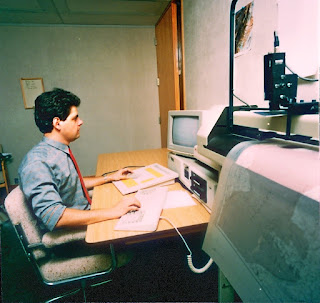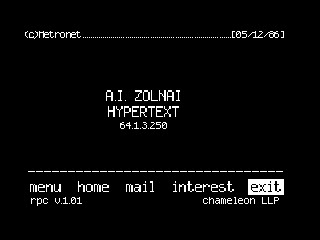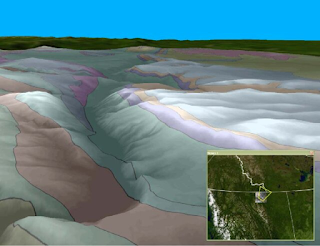Community Engagement 1, ... 12, 13, 14, 15, 16, 17, 18, 19, 20 & 21
My web presence
Wednesday, 28 June 2023
Cottenham Open CIC rebooted
Monday, 25 March 2019
Local community engagement
This follows my transition introduced last September and last month. I first used Esri web mapping tools to help me canvass for EU elections in my local community five years ago. I then found local community engagement - online in my old Texan hometown of Houston - 18 months ago with Hurricane Harvey. I presented social aspects afforded GIS at Esri European Petroleum GIS conference in London that fall.
Sunday, 8 September 2019
"I searched it my way"
Local Community Engagement 1, 2, 3, 4 & 5
[Update: Part 6 adds our own Wikipedia Gazetteer as we build up the local landscape]
Saturday, 20 January 2024
Community engagement and social prescribing
Community Engagement 1,... 20, 21, 22, 23, 24 & 25
This follows an update on this blog here, where I announced my move away from Cambridge. This is also a good place to end the Community Engagement series. I will however continue on topics as they arise like re: AI here, or Sea Level Rise here & updated Thames Barrier starting here. Follow also the Blog Archive to the right-hand side of the desktop version here, as well as the right-hand side of the Banner Menu atop.
We recently rebranded Cottenham.info to Cambridgeshire.ai: the domain name is acquired but page not done yet finished; we have a prospectus as an evergreen document, meaning ever evolving.
Our community involvement over 5 years in March is one object of this blog starting here (follow the links) and listed here. We engaged with various community interest parties at the impact of climate change then the pandemic on social isolation in East Anglia.
Tuesday, 31 October 2023
Community Interest Company blog recap
Community Engagement 1,... 20, 21, 22, 23 & 24
As I move away from Cambridge to SW FR in my family home, I will also exit socials and rethink my online engagement, where I lost all my pensions! I have also moved my domain to a new provider, which preserves this blog, Mind the Map and My Year in Kuwait above, but loses the superseded web page and my email now on Yahoo. I do, however, stay engaged with my Community Interest Company Cambridgeshire.ai at right. See following post here.
Monday, 19 August 2019
Process Framework
Friday, 15 November 2019
Friday, 31 May 2019
Community Story Map
Local Community Engagement, 1 & 2
[Update: Part 3 will tie together community maps and climate mapping]
Saturday, 13 July 2019
Community, Climate and Maps - a digression
Local Community Engagement, 1, 2 & 3
[Update: Part 4 introduces a process framework for this community engagement
Update 1: Northwest Passage: Maps and words adds more illustrations and better maps
Update 2: see also this video Arctic Sea Ice Summer based on improved maps above
Update 3: further story map Fire & Ice - Arctic past and future climes focused onshore]
Wednesday, 27 November 2019
Monday, 20 July 2020
Cottenham Open Manifesto
Community Engagement 1, ... 12, 13 & 14
The previous post tallied three series - community engagement, and geo-info and pandemic maps & stats - since starting cottenham.info almost 18 mo. ago. Not only will Anthropocene East Anglia give a geo-historical framework for it all, it also highlights the opportunities and challenges in the future, which we proposes to address. Let's detail our proposed road map issued from all this as well as discussions with local councils, ecologists, and neighbouring village revival planners:
Tuesday, 20 June 2023
A brief history of mine
Update 2: see my journey on the web here.
Update 1: a duo of posts on my Medium professional channel here relates my early computing.
As I go through a 'hard reset' in my life and plan to exit social media, this may be a good time to pause and reflect on my IT journey.
 |
| Calgary 1986 see here |
Anecdote 1: as an undergrad at University of Calgary, I learned of Ted Nelson's Xanadu project (here), to catalog the world's information via what later became Hypertext Markup Language (HTML) - few people realise Tim Berners-Lee didn't invent anything, he built on exisiting systems... as we all do - but Nelson was a propeller-head who couldn't market his idea (here). John Walker, co-founder of Autodesk, reportedly bought the technolgy but it never got anywhere... I heard of this as I was cooling my heels awaiting to meet him, with Carol Bartz his then PA - the same who eventually lead Autodesk then Yahoo, a true pioneering woman in IT - when a surveyor friend and I tried to sell them the idea of a mapping front-end to AutoCAD ... in 1986! Remember MS Windows was launched just the year before (see Side Story here and illustration here incl. photo above). Did you know I received a copy of Windows v.1.O as part of a hardware upgrade to boost my computer's memory from 640Kb to 1Mb?! Sidebar: Was Bill Gates not famously quoted that no personal computer would ever need over 640Kb RAM (here)?
CD-ROMs
Anecdote 2: Microsoft was largely credited with popularizing CD for software distribution. While that is true, the real initiative was the US Dept. of Defense - the same people whose DARPA developed the precursor to the internet linking US military to government contractors, chiefly universities in the beginning - the reason? In the Cold War era, it was feared the Soviets might detonate an atom bomb at 5-10 mi. altitude that would fry the entire electronic infrastructure of mainland US, thus disabling the military - oh! and the rest of the country is collateral - I learned via the USGS mentioned above, that CDs were immune to resulting electromagnetic pulses.
Anecdote 3: as I had been on contract to the Geological Survey of Canada Calgary office across from the university, we visited the geological library and offered to scan the index cards to electronically catalog them on CD-ROM - after all our software came from a school library application - do you know what the librarian said then? "If we made the catalog that easily accessible, can you imagine the amount of work that might create?" We obviously had work to do, convincing a traditional business of the advantages of electronic access, taken for granted now!
Pre-WWW
Standards & Metadata
Volunteered Geographic Information
Tuesday, 28 September 2021
Return East Anglia Peatlands to being carbon sinks
Community Engagement 1, ... 12, 13, 14, 15, 16, 17, 18, 19 & 20
[ Update 6: peatlands revisited in 2025 here
Update 5: Community Interest Company re-engagement is here
Update 4: actual Fenlanders interviewed in this fab blog post
Update 3: peatland restoration by numbers, Indonesian example
Update 2: soil degradation and climate change masterclass, TEDtalk pointers
Update: added Why we should all be obsessed with Peatlands at the end of the story map below ]
No. 20! Isn't it fitting that chronicling East Anglia challenges & opportunities w.r.t. climate emergency - risk of flooding, sea level rise, vulnerability indices and now pandemic - uncovered the greatest opportunity yet: returning local peatlands from carbon emitters to original carbon sinks could dwarf any individual effort to mitigate CO2 emissions, currently the major driver of climate change.
Monday, 30 October 2023
AI Prompt Engineering Trial 2
Community Engagement 1,... 20, 21, 22 & 23
Update 2: next blog installment is here.
Sunday, 11 July 2021
What is your 'ikigai'?
Ikigai (生き甲斐, "a reason for being") is a Japanese concept referring to having a direction or purpose in life, providing a sense of fulfillment and towards which they the person may take actions, giving them satisfaction and a sense of meaning. en.wikipedia.org
Sunday, 5 October 2025
My web footprint
Let me highlight the importance of the recent topic of AI my Community Interest Company delved into and I used in various forms shared in the last post here. Open this blog's desktop version here, look at the stats at its right... and you'll see why the curve below spikes at far right here!
 |
| click to enlarge, original here |
Friday, 18 December 2020
Digital Nomads and Digital Divide
Here is the Parliament f i n a l l y addressing the challenges posed by the pandemic, with a fairly comprehensive review of the facts they gathered.
Saturday, 22 February 2025
East Anglia Peatlands revisited
Update1: see clipped oroginal and working vector datasets posted as detailed at bottom.
Update 2: added DIY map-mapping workshops & notes to help citzen science
Update 3: here at the end is the relevance of this sort of effort in a broader context
Update 4: worrying revisit of peatlands degradation with increased drought & extreme weather here: increased heat degraded carbon absorption, and that is mirrored in tropical forests turning into carbon emitters seen here
***
This follows on previous Peatlands blog posting here, last of the Community Engagement Series.
As news abounds about Arctic Permafrost & Peatlands degrading faster than thought (Copilot), this may be a good time to bring back some Natural England and Environment Agency data under Open Government License (OGL, National Archives). The upshot is that returning peatlands to their original state is the biggest climate change mitigator in the UK detailed here & here: briefly, peatlands either degraded thru neglect or converted to farm land, not only shrinks & stops being floodwater catchment, but it converts carbon sinks through sphagnum moss into carbon emitters thru windborne dried peat. In other words, re-watering peatlands dwarf efforts from other mitigation of climate change (see sources at bottom).



